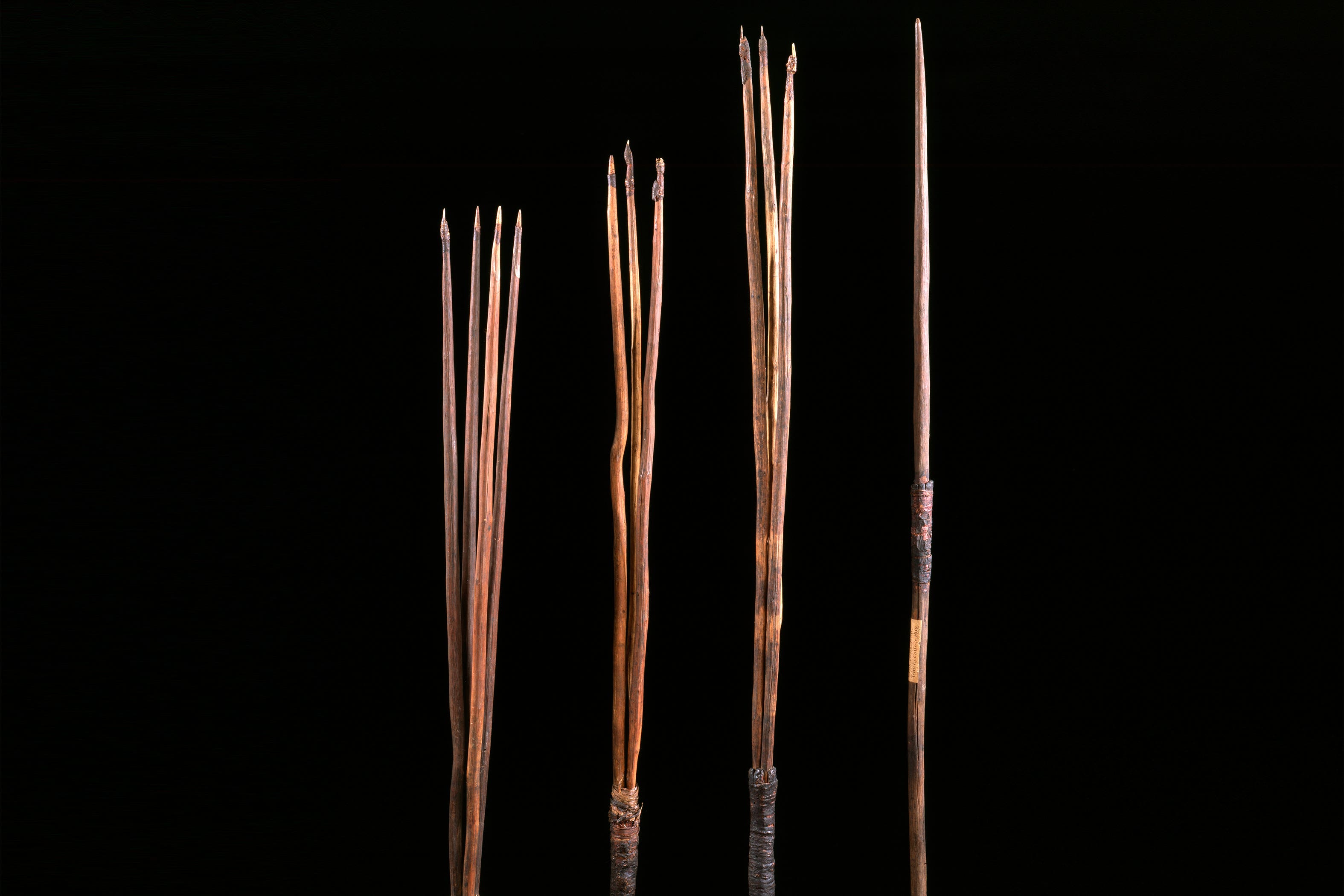Aboriginal spears to be returned to Australia in ceremony at Cambridge college
Dame Sally Davies, Master of Trinity, said it was the ‘right decision’ to return the spears.

Your support helps us to tell the story
From reproductive rights to climate change to Big Tech, The Independent is on the ground when the story is developing. Whether it's investigating the financials of Elon Musk's pro-Trump PAC or producing our latest documentary, 'The A Word', which shines a light on the American women fighting for reproductive rights, we know how important it is to parse out the facts from the messaging.
At such a critical moment in US history, we need reporters on the ground. Your donation allows us to keep sending journalists to speak to both sides of the story.
The Independent is trusted by Americans across the entire political spectrum. And unlike many other quality news outlets, we choose not to lock Americans out of our reporting and analysis with paywalls. We believe quality journalism should be available to everyone, paid for by those who can afford it.
Your support makes all the difference.A ceremony at a Cambridge University college will mark the permanent repatriation to Australia of four Aboriginal spears that were brought to England by Captain James Cook more than 250 years ago.
A delegation from Australia will attend Trinity College’s Wren Library where the artefacts – described as “exceptionally significant” – will be permanently returned to the La Perouse Aboriginal community.
Their return was agreed in March last year, following a campaign and a formal repatriation request.
Dame Sally Davies, Master of Trinity, said it was the “right decision” to return the spears.
She added that Trinity College was “committed to reviewing the complex legacies of the British empire, not least in our collections”.
Captain Cook’s landing on the shores at Kamay (Botany Bay) in 1770 was resisted by Gweagal men – the indigenous Australian people of the area.
Soon afterwards, the British crew took 40 spears from a local camp, and four were later given to Trinity College, Cambridge.
Lord Sandwich of the British Admiralty, a Trinity alumnus, presented the four spears to Trinity College in 1771, soon after Captain Cook returned to England on the HMB Endeavour.
They have been part of the college’s collection since then, and from 1914 were cared for by Cambridge’s Museum of Archaeology and Anthropology.
The four spears, which are all that remain of the original 40 spears, are regarded by the Gweagal as national treasures.
Gweagal people still use similar multi-pronged fishing spears.
Trinity College’s decision to return the spears followed a decade of talks between the MAA and the Aboriginal community at La Perouse.
Professor Nicholas Thomas, director of the Museum of Archaeology and Anthropology and Trinity Fellow, said it had been “immensely rewarding to collaborate with the La Perouse Aboriginal Community”.
“The spears are exceptionally significant,” he said.
“They are the first artefacts collected by the British from any part of Australia, that remain extant and documented.
“They reflect the beginnings of a history of misunderstanding and conflict.
“Their significance will be powerfully enhanced through return to Country.”
Noeleen Timbery, of La Perouse Local Aboriginal Land Council, said the spears are an “important connection to our past, our traditions, and cultural practices, and to our ancestors”.
“Our Elders have worked for many years to see their ownership transferred to the traditional owners of Botany Bay,” she said.
“Many of the families within the La Perouse Aboriginal Community are descended from those who were present during the eight days the Endeavour was anchored in Kamay in 1770.”
Ray Ingrey, of La Perouse Aboriginal community group the Gujaga Foundation, described the spears as “pretty much the first point of European contact, particularly British contact with Aboriginal Australia”.
“I think for us it’s a momentous occasion that where Australia’s history began, in 1770 on the shores of Botany Bay at Kurnell, the spears that were undoubtedly taken without permission are returned to the rightful people,” he said.
“Ultimately, they’ll be put on permanent display for everyone to go see; at the very spot they were taken from 250 years ago.”
Some of the spears were returned temporarily to Australia in 2015, and again in 2020, for the first time since they were taken by Captain Cook, and displayed by the National Museum of Australia in Canberra, as part of two exhibitions exploring frontier encounters.
The spears will be displayed at a new visitor centre which is to be built at Kurnell, Kamay.
Until then, at the request of the La Perouse Aboriginal Community, they will be cared for by the Chau Chak Wing Museum at the University of Sydney.
Tuesday’s ceremony at Trinity College is due to be attended by members of the La Perouse Aboriginal Community and the Australian government among others.
It is set to include readings from the Voyage Journals of James Cook and Joseph Banks as well as statements by representatives of the La Perouse Aboriginal Community.